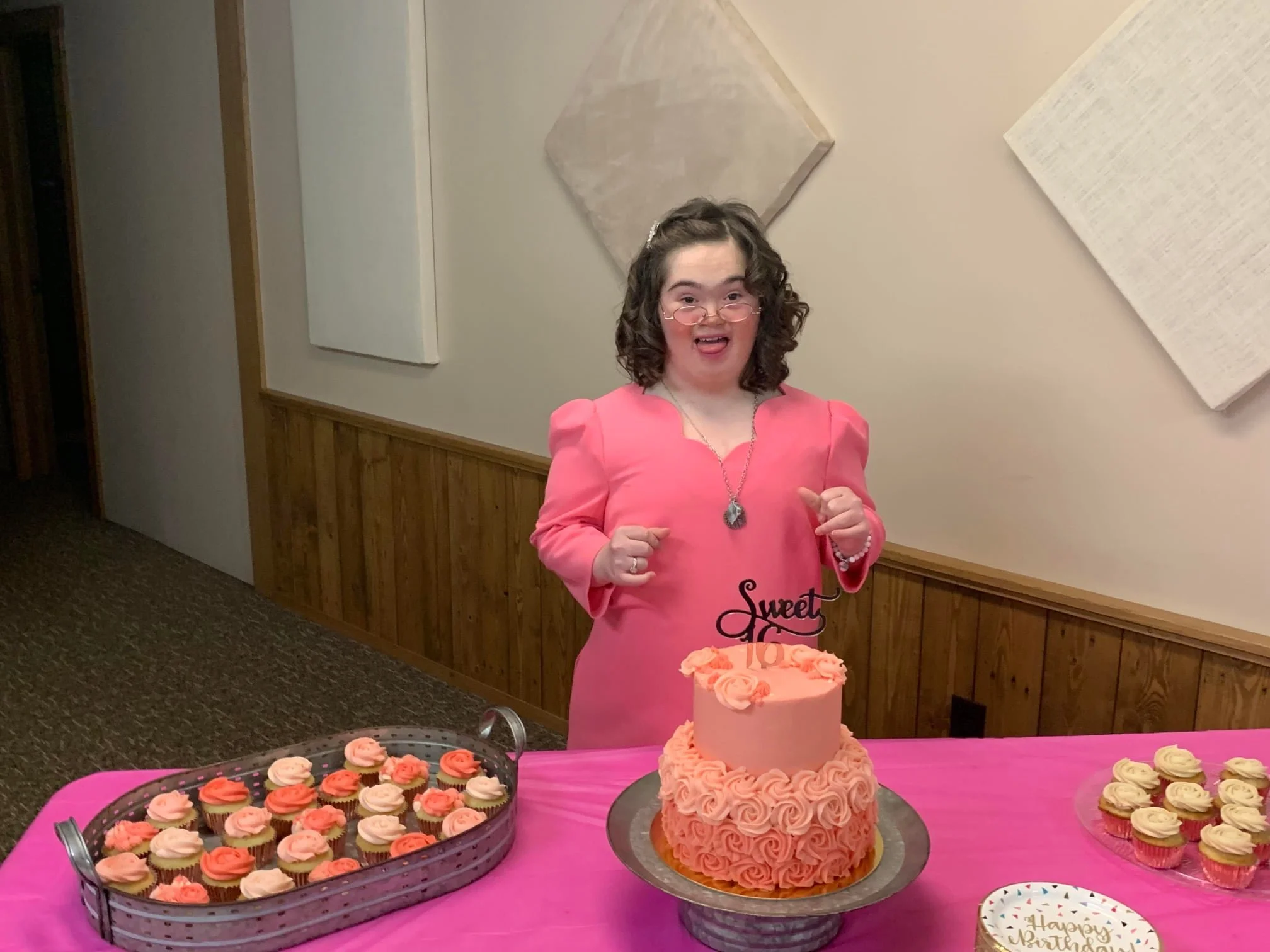I had a dozen emotions when the doctors informed me that my baby girl had Down syndrome. It was an unanticipated diagnosis after birth. I loved her instantly, but it took time to process the news.
After her diagnosis, I sought information from several sources. Books, websites, and other parents taught me the fundamentals of Down syndrome and what to expect. This helped me understand how to assist my child and what sort of therapies and medical interventions may be needed. All of those resources were beneficial, but the church was an important resource for me as well. It was the place that I looked to for emotional and spiritual support, in a time when I was fearful and anxious.
When my daughter was born, we were attending a small church. The news of her special birth and heart defect spread quickly. Our church family surrounded us in prayers and let us know they there for us. They were a resource for our family at a time when we were in need.
Today, we are parenting a now 16-year-old with Down syndrome. As she ages, we still seek Down syndrome resources to learn how to best support her in each stage of her life. The same is true with the church. We still look to our church family for support and care in ways that other resources are unable to do.
Based upon my experiences, I would like to offer three ways that churches can better support families like mine, no matter the age of the person with Down syndrome.
Photo credit: Evana Sandusky.
Embrace Families With Down Syndrome
If a family in your congregation has a new baby with Down syndrome, congratulate them. Welcome them into your church as you would any other baby. Provide a joyful and positive environment so that the new parents are affirmed that their baby is a life valued by your congregation.
If a new family arrives at your church with a child or adult with Down syndrome, reach out and make them feel welcome. It would be beneficial to have a simple conversation to discover ways to make the family’s time at church more comfortable or accessible.
Provide A Listening Ear
Each family that has a loved one with Down syndrome is unique. The dynamics, personalities, and experiences are all going to affect how a family with Down syndrome needs support. Some families may struggle with a Down syndrome diagnosis, while others will not. Taking time to talk to these families to understand their perspective and what their spiritual needs may be is essential. You may not be able to provide all the answers they are seeking. However, you may be a safe place where they can ask difficult spiritual questions or be honest with how they are feeling.
Listening is not only important for newly diagnosed families. Each stage of life may present its own challenging circumstances. Caregivers may need someone they trust to talk to at church. Stress and caregiver fatigue are real issues, and the church may provide assistance in these areas.
Learn about Down Syndrome
It does not take too long to research some of the basics of Down syndrome. With a foundational knowledge of Down syndrome, you will be able to understand some of the issues facing families, and needs they may have. This will ultimately help your children’s ministry, and anyone serving families with Down syndrome in your church.
March 21st is World Down Syndrome Day (WDSD), a global awareness day for those with an extra 21st chromosome. Awareness is just as important inside the church, because families need support in all aspects of their lives. I hope that churches will take WDSD as an opportunity to see how they can be better advocates for families in their community.
Evana is a wife and mother of two children. She enjoys serving in her church’s special-needs ministry. Evana is also a pediatric speech-language pathologist and serves children with autism, feeding disorders, and other developmental delays. You can connect with Evana on Twitter, Facebook, and her blog, A Special Purposed Life. You can also read more about her family’s story in her book, Badges of Motherhood: One Mother’s Story about Family, Down syndrome, Hospitals, and Faith.





